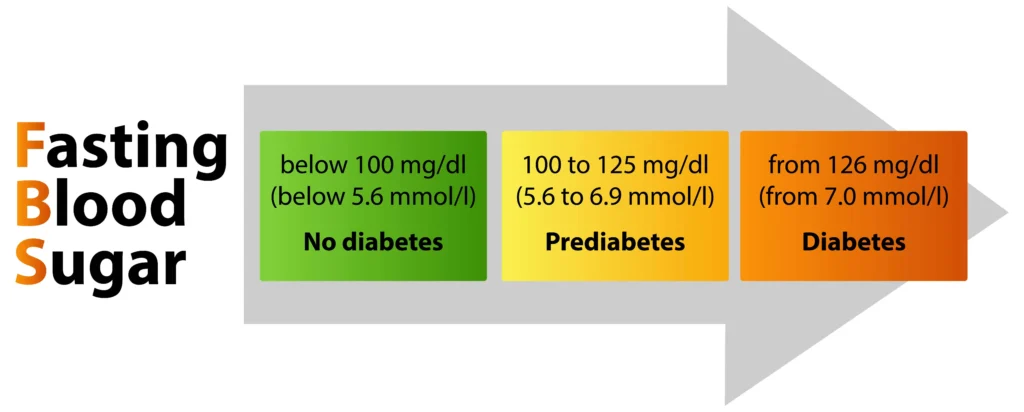That Sweet Moment — Then the Crash
Have you ever treated yourself to a slice of cake or a fizzy drink, only to feel drained, anxious, or unusually tired just an hour later? You’re not alone. You might feel energized right after eating sugar, but that boost fades quickly—then what? How long does sugar stay in your system, and what can you do about it?
In this article, you’ll uncover how your body breaks down sugar, how long it lingers in your system, and what factors influence that timeline. You’ll also discover practical strategies to manage your blood sugar and avoid those dreaded energy crashes.
Table of Contents
What Happens to Sugar After You Eat It?
The Journey of Sugar in Your Body
From the moment you take a bite of something sweet, your body gets to work. Here’s what happens:
- Mouth: Enzymes like amylase begin breaking down carbs into simpler sugars.
- Stomach and Small Intestine: Digestion continues and sugar molecules get broken down into glucose.
- Bloodstream: Glucose moves into your circulation, triggering an increase in blood sugar.
- Pancreas: Detects the rise and releases insulin to help move glucose into cells.
Insulin acts like a key, unlocking cells so glucose can be used for energy or stored for later. When insulin sensitivity is low—as in diabetes—the body has a harder time managing blood sugar levels.
Types of Sugar: Different Speeds, Different Effects
Not all sugars are equal. The way your body processes them varies:
- Simple sugars (glucose, fructose): Absorbed quickly, causing rapid spikes.
- Complex carbs (whole grains, legumes): Broken down slowly for steady energy.
- Added sugars (soda, candy): Processed quickly, often leading to crashes.
Trusted Source: Harvard T.H. Chan School of Public Health
How Quickly Your Body Processes Sugar (And Why It Matters)?
You might be surprised to learn that sugar doesn’t hang around for very long—at least not in its active form.
General Sugar Clearance Timeline
| Sugar Type | Time to Enter Bloodstream | Duration in System | Notes |
| Glucose | 15–30 minutes | 1–2 hours | Fast absorption, quick clearance |
| Fructose | 30–60 minutes | 1–3 hours | Processed by the liver |
| Complex Carbs | 1–2 hours | Up to 4+ hours | Slow and steady digestion |
These timelines can vary depending on several factors like your activity level, insulin sensitivity, and what else you’ve eaten.
Factors That Influence Sugar Clearance
- Metabolism speed: Faster metabolism clears sugar quicker.
- Exercise: Physical activity uses glucose for energy.
- Meal composition: Balanced meals with fiber, fat, and protein can help moderate sugar’s impact on your blood.
- Health status: Conditions like diabetes prolong sugar presence.
- Sleep and stress: Elevated stress or poor sleep affects hormones like cortisol, which disrupt how your body manages sugar.
Reliable Resource: CDC – Blood Sugar Monitoring
Recognizing the Symptoms of Sugar in Your System

After the Sugar Hit: Immediate Effects
When blood sugar spikes:
- You feel energetic and alert.
- Your heart rate may increase.
- You feel emotionally uplifted (a dopamine rush).
The Crash: When Sugar Drops
As insulin moves sugar out of your bloodstream, levels fall. You may feel:
- Fatigue or drowsiness
- Irritability or anxiety
- Dizziness
- Cravings for more sugar
Timeline of Symptoms
| Time After Intake | Symptoms |
| 15–30 mins | Energy boost, alertness |
| 45–60 mins | Peak sugar level |
| 1–2 hours | Fatigue, irritability |
| 2–3 hours | Hunger, sugar cravings |
How to Flush Sugar from Your Body Naturally
You don’t need a detox pill. Your body already knows how to reset—you just need to help it.
Natural Ways to Clear Sugar Faster
- Hydration: Drinking water supports kidney function and helps eliminate excess glucose.
- Exercise: A brisk walk or workout uses blood sugar as fuel.
- Fiber-rich meals: Soluble fiber slows sugar absorption.
- Protein + healthy fats: Balance your meals to prevent sharp spikes.
What to Avoid
- Skipping meals (this can backfire and worsen crashes)
- Relying on sugary “energy” drinks or snacks
- Taking unverified detox products or extreme diets
Evidence-Based Info: Cleveland Clinic – Lower Blood Sugar Naturally
Long-Term Impact of Too Much Sugar
Even if sugar doesn’t stay in your bloodstream for long, the effects of chronic overconsumption build up over time.
Health Risks of High Sugar Intake
- Type 2 diabetes
- Heart disease
- Non-alcoholic fatty liver disease
- Obesity
- Depression and mood disorders
Signs You’re Eating Too Much Sugar
- Constant energy crashes
- Cravings right after meals
- Brain fog and poor focus
- Sleep disturbances
Trusted Guidance: World Health Organization
Tips to Cut Back on Sugar (Without Feeling Deprived)
Small, consistent changes make a huge difference:
Practical Tips
- Read labels: Watch for hidden sugars (like dextrose, maltose, corn syrup).
- Choose whole fruits over juices
- Use natural spices such as cinnamon to enhance flavor without adding sugar
- Choose healthier sugar substitutes like stevia or monk fruit for a more balanced diet
- Snack smart: Nuts, seeds, Greek yogurt, or hard-boiled eggs
FAQ: How Long Does Sugar Stay in Your System?
Does sugar stay longer if you have diabetes?
Yes. If you have insulin resistance or diabetes, your body struggles to remove glucose from your bloodstream, which keeps sugar levels elevated for longer.
How long does it take to return to normal blood sugar after eating?
If you’re metabolically healthy, your blood sugar often returns to baseline a few hours after eating. In people with metabolic conditions, this can take longer.
Can exercise help remove sugar faster?
Absolutely. Physical activity prompts your muscles to absorb more glucose, reducing sugar levels more efficiently.
Will drinking water help flush sugar out?
Yes. Staying hydrated supports your kidneys in filtering excess sugar from your blood through urine.
Conclusion: Sugar Doesn’t Have to Control You
Now you know: while sugar doesn’t linger in your bloodstream for too long, its impact can last far longer—especially if your daily diet revolves around it. By understanding how your body processes sugar and using simple, sustainable strategies, you can stay in control of your energy, mood, and overall health.You don’t need to fear sugar, but you do need to respect it. It’s about balance, awareness, and daily decisions.
Ready to Take Back Control?
If you’ve been struggling with crashes, cravings, or confusion around sugar, it’s time to make a change. Start with small, intentional steps and track how you feel. Your body will thank you.
Share this guide with someone who needs it, or bookmark it for future reference.
References and Medical Sources
Disclaimer: This article is for informational purposes only. It is not a substitute for professional medical advice, diagnosis, or treatment. Always consult your healthcare provider before making any health-related decisions.

